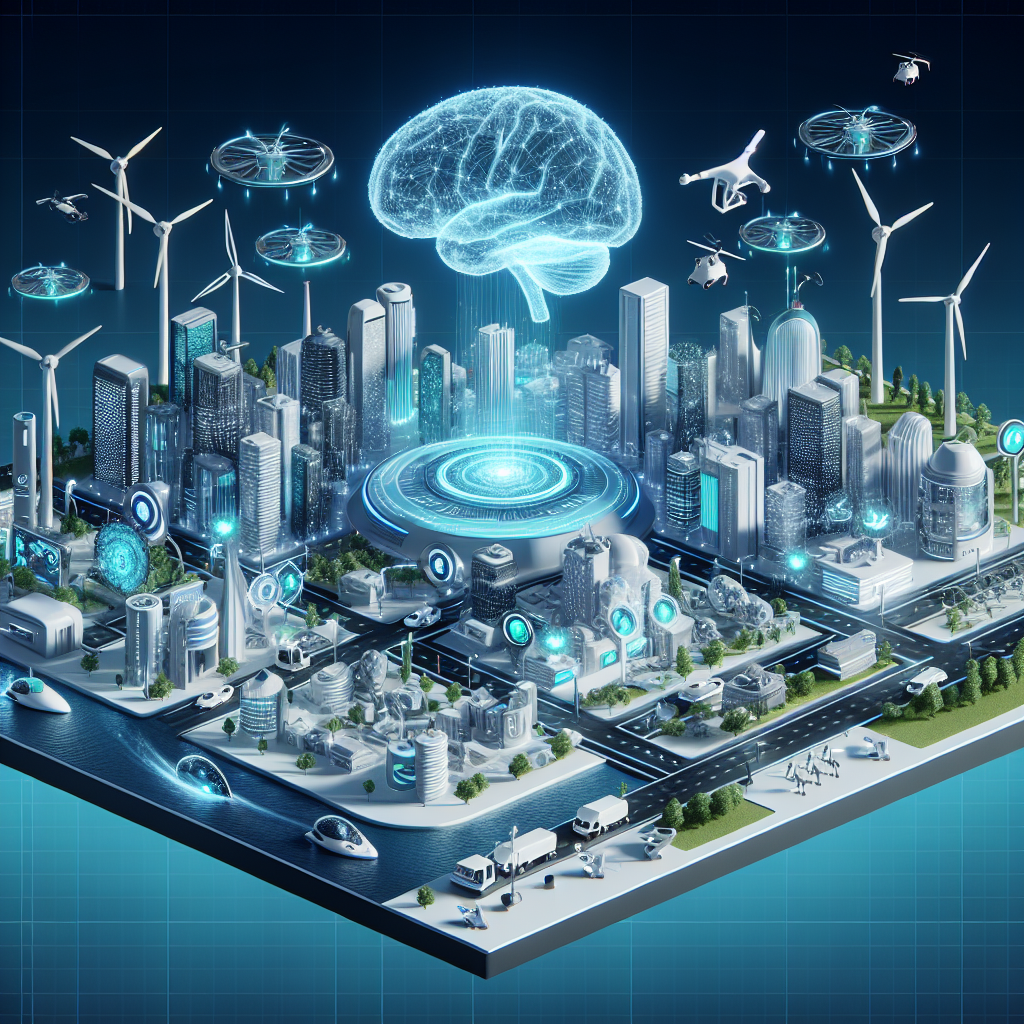Artificial Intelligence (AI) has become a game-changer in various industries, and the energy sector is no exception. AI technologies are being increasingly used to optimize resource management, improve efficiency, and reduce costs in the energy industry. From predictive maintenance to demand forecasting, AI is revolutionizing the way energy is produced, distributed, and consumed.
One of the key areas where AI is making a significant impact in the energy sector is in resource management. Energy companies are faced with the challenge of balancing supply and demand, optimizing production, and minimizing waste. AI technologies such as machine learning, predictive analytics, and optimization algorithms are helping energy companies make better decisions in real-time.
Predictive maintenance is one application of AI that is helping energy companies improve the reliability of their infrastructure and reduce downtime. By analyzing historical data and identifying patterns, AI can predict when equipment is likely to fail and recommend preventive maintenance actions. This proactive approach to maintenance not only reduces costs but also improves the overall efficiency of energy production.
Another area where AI is making a difference in the energy sector is in demand forecasting. Energy consumption patterns are constantly changing, making it challenging for energy companies to accurately predict demand. AI algorithms can analyze historical data, weather patterns, and other factors to forecast demand with greater accuracy. This allows energy companies to optimize their production schedules, reduce waste, and meet customer needs more effectively.
AI technologies are also being used to optimize energy distribution networks. By analyzing data from sensors and smart meters, AI algorithms can identify inefficiencies in the distribution network and recommend solutions to improve efficiency. This can help energy companies reduce losses, improve reliability, and lower operating costs.
In addition to resource management, AI is also being used to improve energy efficiency in buildings and industrial facilities. Smart building technologies that incorporate AI algorithms can optimize heating, cooling, lighting, and other systems to reduce energy consumption while maintaining comfort levels. Industrial facilities can also benefit from AI-driven energy management systems that monitor energy usage, identify opportunities for optimization, and automate energy-saving measures.
Overall, AI technologies are helping energy companies optimize their operations, reduce costs, and improve sustainability. By leveraging the power of AI, energy companies can make smarter decisions, increase efficiency, and stay competitive in a rapidly evolving industry.
Frequently Asked Questions (FAQs):
Q: How is AI being used in the energy sector?
A: AI is being used in the energy sector to optimize resource management, improve efficiency, and reduce costs. It is being used for predictive maintenance, demand forecasting, energy distribution optimization, and energy efficiency in buildings and industrial facilities.
Q: What are the benefits of using AI in the energy sector?
A: The benefits of using AI in the energy sector include improved reliability, reduced downtime, optimized production schedules, reduced waste, improved efficiency, lower operating costs, and increased sustainability.
Q: How can energy companies implement AI technologies?
A: Energy companies can implement AI technologies by collecting and analyzing data, building AI models, integrating AI algorithms into existing systems, and training employees to use AI technologies effectively.
Q: What are some challenges of implementing AI in the energy sector?
A: Some challenges of implementing AI in the energy sector include data quality and availability, integration with existing systems, cybersecurity risks, regulatory compliance, and the need for skilled AI professionals.
Q: How can AI help energy companies reduce their environmental impact?
A: AI can help energy companies reduce their environmental impact by optimizing energy production and distribution, improving energy efficiency, reducing waste, and promoting renewable energy sources.
In conclusion, AI development in the energy sector is revolutionizing resource management, optimizing operations, and driving sustainability. By leveraging AI technologies, energy companies can make smarter decisions, reduce costs, and improve efficiency in a rapidly changing industry. As AI continues to evolve, the energy sector will likely see even greater advancements in the years to come.

